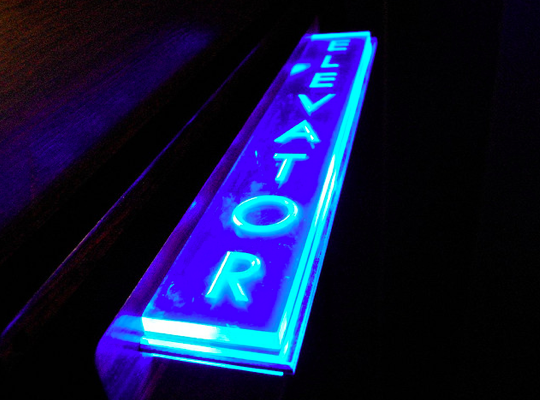Don’t you just hate talking about yourself?
Earlier this year, I had occasion to give a talk about my career and my work to a group of retirees as part of a senior-learning program sponsored by Miami University. I focused my talk on The Clara Project, a series of posts on my recipe blog, writes4food.com, inspired by a collection of 1930s recipes, which were previously owned by a woman named Clara Shenefelt, and which I discovered in an antique shop nearly 2 years ago. (As it happens, Clara lived at this retirement complex until she passed away earlier this month at age 98.)
I was unusually nervous and self-conscious about the talk. Giving this presentation felt like giving my “elevator pitch”—but, like, for nearly an hour.
But I learned something very important from this experience, something that I think is relevant to anyone who works in the creative field:
Whatever it is that you do for a living, if you speak of it with authentic enthusiasm, people will be interested in hearing about your work.
And that goes whether you’re pitching to a prospective client or meeting the friend of a friend at a party.
Aside from the few elderly gents who dozed during the presentation like they were in church, the audience seemed genuinely appreciative. They wanted to know what I write about, and how I do it. They loved the story of The Clara Project. And I found that expressing my genuine excitement made it so much easier to talk about my work.
You may have worked on your own “elevator speech”—that one-sentence pitch that describes what you do and for whom. It probably follows some kind of formula:
I do _____ for _____ who need _____.
And while the formula can help you structure and hone how you speak about your work, it has its limitations. It can sound a little stilted when you utter the words, like you’ve memorized a few lines of poetry. It can be a little jargon-y, which might play well in a business setting but might be out of place in a social interaction. And it can be a little restrictive.
Instead of memorizing a set pitch that you repeat over and over, try these tips when you’re talking about what you do:
Keep it flexible. The standard version of my pitch is: “I’m an independent journalist, copywriter and content developer, and I focus on food and wellness, creativity and design.” Recently, I spoke to a group of olive oil producers, and I introduced myself by saying, “I write about food for magazines and food brands.” When I spoke last month to a group of design-firm principals, I said, “I help creative agencies tell their stories.” Your pitch should flex depending on who you’re talking to.
Have a shorthand version for social settings. At a party, if I’m asked what I do, I simply say, “I’m a food writer.” Invariably, I’ll get a follow-up question: “Oh, so who do you write for?” When you’re in a social setting, can you come up with a short-and-sweet description of your work that prompts additional conversation?
Let your enthusiasm shine. Whether you write about food or you develop B2B websites, there’s something about the work you get really geeked about. Tap into that when you’re talking with someone new about your work.

I always struggle with telling people what I do succinctly. Recently I helped a first-time self-published author with her book design. When we met for lunch after her first presentation she was excited that doors seemed to be opening that were closed to her before. I told her it was probably because the book looked professional so people were taking her seriously. After hearing her story I started playing with the idea of telling people I help entrepreneurs communicate effectively, gain credibility and open the doors to their dreams.
Anyway, It IS hard to put everything we do into words that are easy to say and remember. Thanks for sharing your tips.